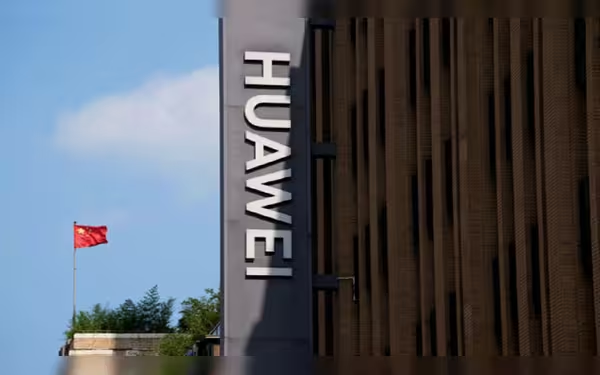Thursday, December 5, 2024 01:44 AM
Huawei Plans Mass Production of Ascend 910C AI Chip by 2025
- Huawei to mass-produce Ascend 910C AI chip by 2025.
- Current yield of Ascend 910C is only 20%.
- U.S. sanctions complicate Huawei's semiconductor ambitions.
 Image Credits: phoneworld_pk
Image Credits: phoneworld_pkHuawei aims to mass-produce the Ascend 910C AI chip by 2025, despite facing significant challenges from U.S. sanctions.
In a significant move for the tech industry, Huawei has announced its ambitious plan to mass-produce the Ascend 910C, its most advanced artificial intelligence (AI) chip, by early 2025. This development comes at a time when Huawei is facing stringent trade restrictions imposed by the United States, which have made it increasingly challenging for the company to operate in the global semiconductor market. The Ascend 910C is designed to compete directly with Nvidia’s leading processors, showcasing China's determination to achieve self-reliance in semiconductor technology.
The Ascend 910C chip is being manufactured by Semiconductor Manufacturing International Corp (SMIC) using an advanced N+2 process. This highlights Huawei's resilience in navigating a complex and often hostile global landscape. However, the U.S. sanctions have severely limited China's access to cutting-edge ultraviolet lithography (EUV) tools, which are essential for efficient chip production. As a result, the current yield of the Ascend 910C stands at a disappointing 20%, significantly lower than the 70% yield needed for commercial success.
Despite these challenges, Huawei has already begun sending samples of the Ascend 910C to potential clients and has started accepting orders. The initial focus will be on strategic government and corporate sectors, emphasizing critical domestic applications. Since 2020, U.S. sanctions have restricted Huawei's access to advanced chip-making technologies, further complicating its supply chain. Recent measures have also forced Taiwan Semiconductor Manufacturing Co. (TSMC) to halt shipments of advanced chips to Chinese clients, adding to the hurdles Huawei faces.
Nevertheless, Huawei has managed to boost its domestic chip production, albeit with limited support from TSMC. The Chinese government views Huawei's advancements as a vital part of its broader strategy to counter Western dominance in the semiconductor industry. However, the production challenges faced by Huawei underscore the steep road ahead in achieving its goals.
On the flip side, U.S. tech giants like Nvidia continue to thrive, benefiting from unrestricted access to advanced manufacturing technologies. The success of the Ascend 910C could potentially redefine the global AI and semiconductor landscape. If Huawei can overcome its current production limitations, it may significantly enhance China's position in the global technology race, further intensifying the ongoing U.S.-China tech rivalry.
As we look ahead, it will be interesting to see how Huawei navigates these challenges and whether it can successfully launch the Ascend 910C as planned. The outcome of this endeavor could have far-reaching implications for the future of technology and international relations. Stay tuned for more updates on this developing story.













